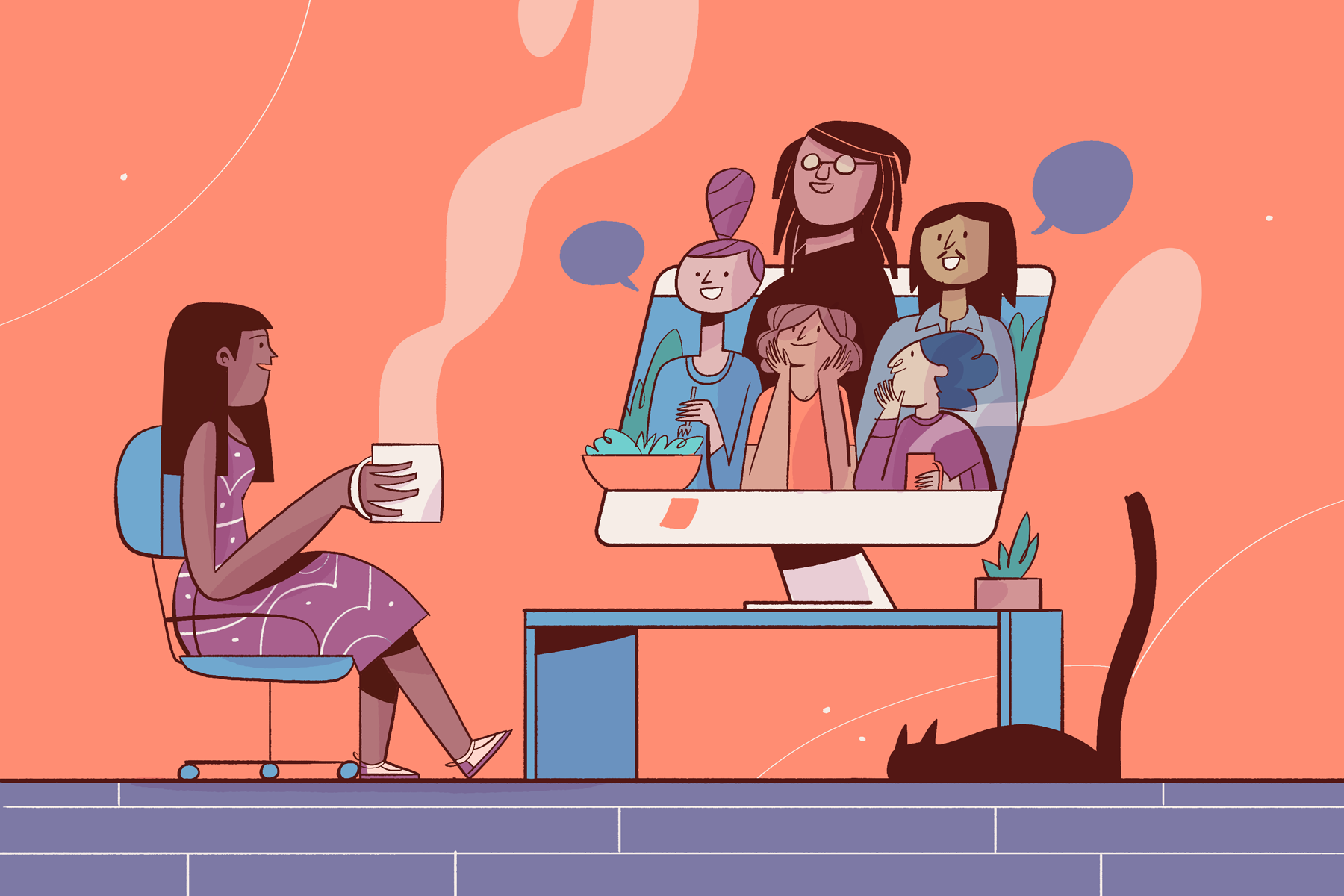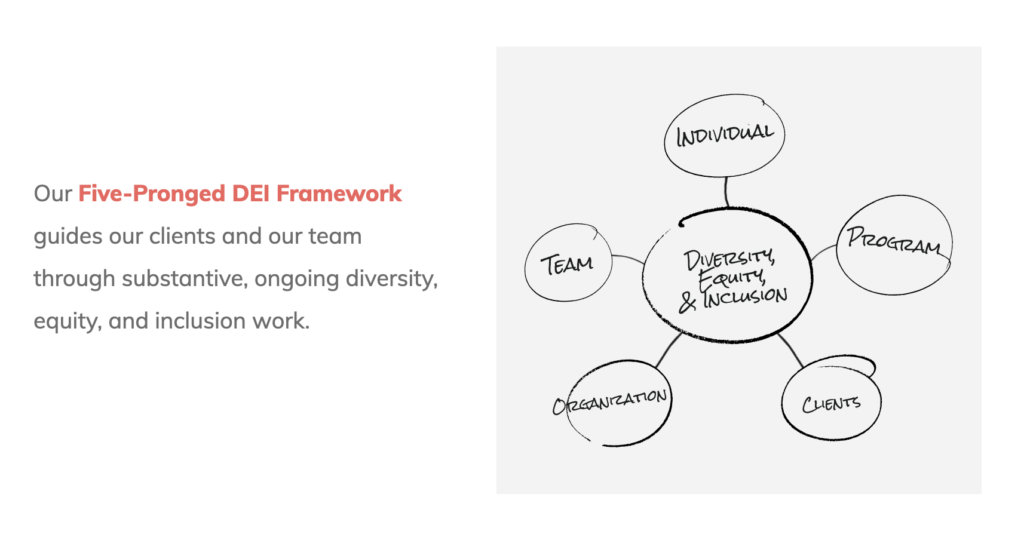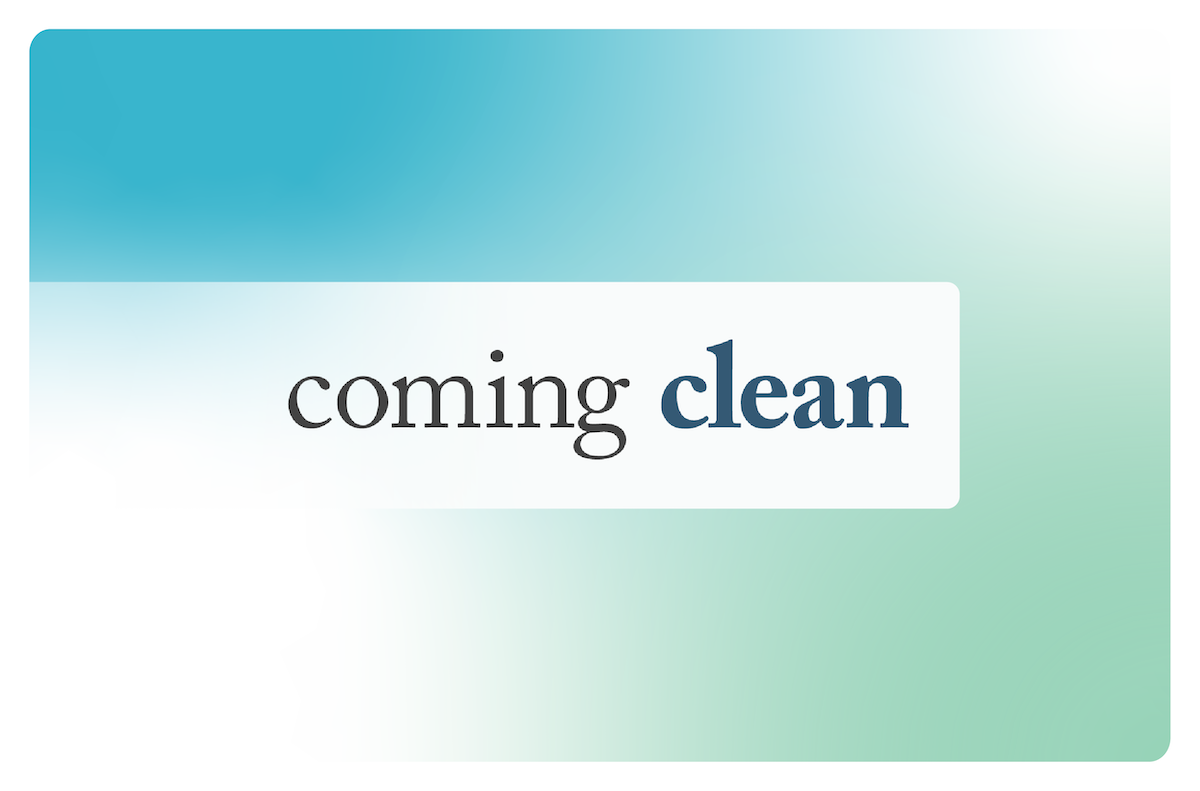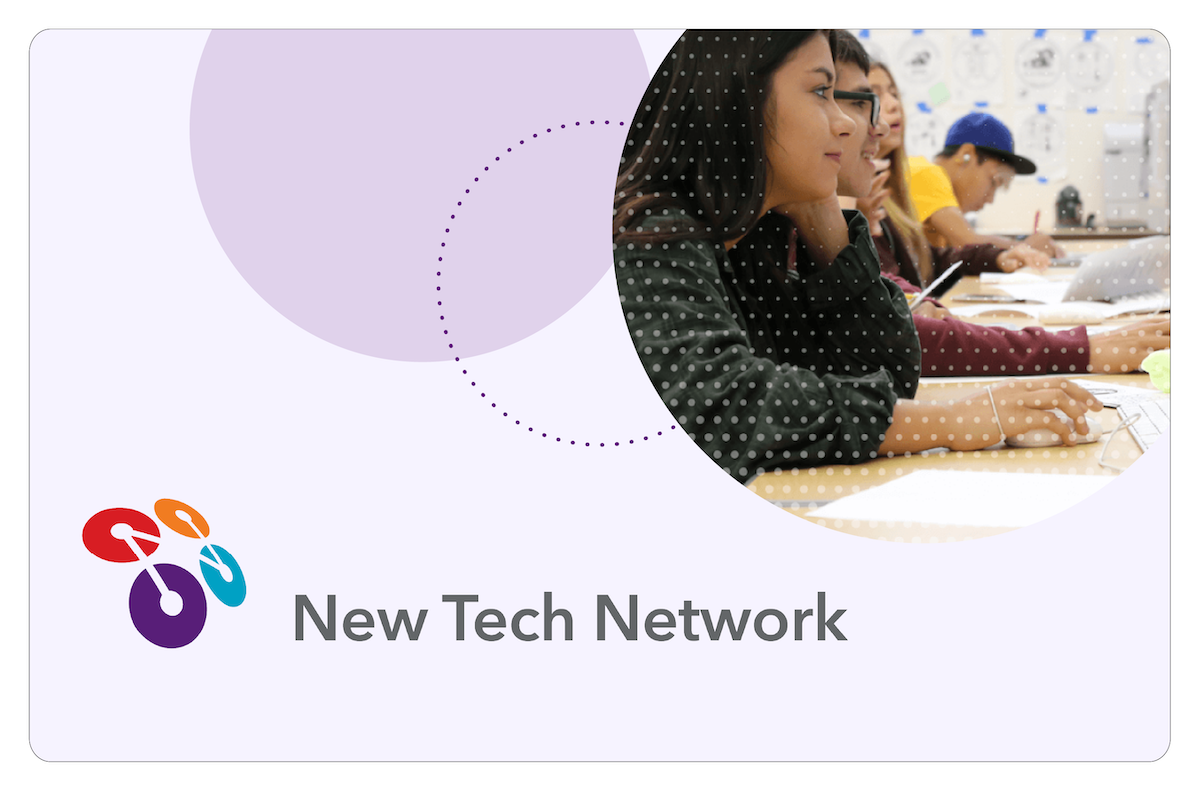How Informal Communication Strengthens Teamwork

When we first started Friday in 2019, we intentionally decided to build a fully-remote company due to our four co-founders being spread out across California. However, a distributed team also reinforces our values. We believe that when colleagues are ambassadors of different types of communities in varying parts of the country, their diversity of perspective and day-to-day experience makes our collective work stronger.
Fast forward five years and this intention has become a reality – our staff resides across six states; rural, suburban and urban; varying local priorities and challenges. We’re proud of how our team has grown, however, we’re also keenly aware that working remotely can silo teams and leave individuals feeling disconnected. One way we’ve worked to mitigate this challenge is by adopting intentional routines and practices around informal communication. Informal communication is casual conversation in the workplace that has little to nothing to do with the actual work. In a traditional office setting this may happen during lunch, while in the elevator, in between meetings, or in line for coffee at the cafe around the corner. In a remote setting, these opportunities don’t surface organically, so leaders and managers have to make space for casual conversation to exist without judgment.

Making the case for (intentional) small talk
The mention of small talk may make many of you cringe. Harvard Business Review’s 2021 study of remote workers found that while casual conversations with colleagues were both uplifting and distracting to employees, the positives generally outweigh the negatives.
“On days workers made more small talk than usual, they experienced more positive emotions and were less burned out. They were also more willing to go out of their way to help their colleagues.”
At Friday we believe that informal communication isn’t just surface-level pleasantries to fill an awkward silence on a Zoom call. It’s a way to encourage employees to show up as their whole selves and find common ground among colleagues. When a team member feels a sense of belonging and is appreciated as a unique individual, relationships are stronger and trust is deepened. When the trust is there, feedback becomes less personal, ideas flow more freely, and we are a stronger team.
Introducing our values during onboarding
During our onboarding process, we make it a priority to ensure that new team members feel encouraged to share their interests and quirks, and that they get to know their colleagues across the company. We begin by walking through our cultural norms that define how we show up with each other and with our clients, which includes the importance/benefits of bringing your whole self and genuinely caring about each other’s personal well-being. New team members are asked to schedule coffee chats with members of the team, calendar availability is visibly open to all, and conversations are unstructured. We also ask team members to share their personal User Manuals, a practice adapted from Quick and Nimble by Adam Bryant and highlighted in Friday’s DEI Framework. User Manuals are a one-page guide that describes how to work with you, representing “your personality, work style and even quirks.” Everyone’s User Manual is shared company-wide and reviewed periodically as our team grows.
Building informal communication into existing work spaces
On a daily basis, we make space for non-work banter in the same channels where we are already spending time during the work day. *Slack has entered the chat*. Slack is a no-brainer way to encourage staff to share their hobbies, families, pets, and life outside of work. We started with a #random channel for random happenings, articles and musings, and a #friday_family channel to share personal updates, pets, kids and the like. When more specific topics start to trend, use a simple poll to gauge interest in creating a new channel. How has our informal Slack channels built relationships in our team? #friday_mamas has created a space for solidarity in parenthood; #art_talk (an evolution from #inktober) celebrates creative practices of all types; and #pop_culture revealed that Beyonce’s Renaissance needed its own separate group dissection in a “tea time” happy hour.
Weekly routines to reinforce belonging
In addition to unstructured spaces for informal communication, we have built a regular practice of interweaving personal interests, perspectives and expertise into group settings. These practices are genuinely enjoyable, but also promote belonging. Organizational culture experts Great Place to Work advise that belonging at work happens when employees sense that their uniqueness is accepted and even treasured by their organization and colleagues. Doing so brings out the best in everyone – personally and professionally. One way we create space to celebrate our differences is during our diversity, equity and inclusion (DEI) lunches. Our team gathers on Zoom for a team lunch every other week, alternating the agenda on DEI in Our World and Work, and DEI in Our Lives. These discussions challenge us to evaluate our work through a lens of DEI, but also create space to share personal identities and experiences (when/if team members feel comfortable). We discuss how individual identity influences perspective, and how it may contribute to blindspots and biases around various issues. These lunches have become a space where listening and sharing are equally valued, and vulnerability is respected. We also learn a lot about one another (shout out for our DEI team who have led this practice with careful thoughtfulness!).

To wrap up every week, we host a lighthearted “Here’s to Friday” team meeting with a rotating facilitator leading a discussion or brief presentation on a topic of their choice. On Monday, the theme is selected via a virtual wheel spin and the specific topic takes shape purely at the discretion of the team member in the lead. Through this practice we’ve learned about neurodivergence, strategies learned in psychotherapy, and skydiving. We learn about each other’s expertise and interests with enthusiasm, and end the week with a fun and uplifting moment that propels us -- personally and professionally -- into the next.

For more ideas check out these resources:
- Git Lab’s ideas for fostering informal communication
- Making the most of virtual workshops
- Slack apps that encourage conversation between teammates: Donut, Macarons, Random Coffees.

CodePath
More demand, more friction, more labor. The system had to catch up.

Coming Clean
Strengthening funding resilience by aligning membership, strategy, and revenue.

New Tech Network
More services meant more confusion. Structure changed that.
Turn Purpose Into Power
Leave an unforgettable mark. Make an unbelievable impact.


